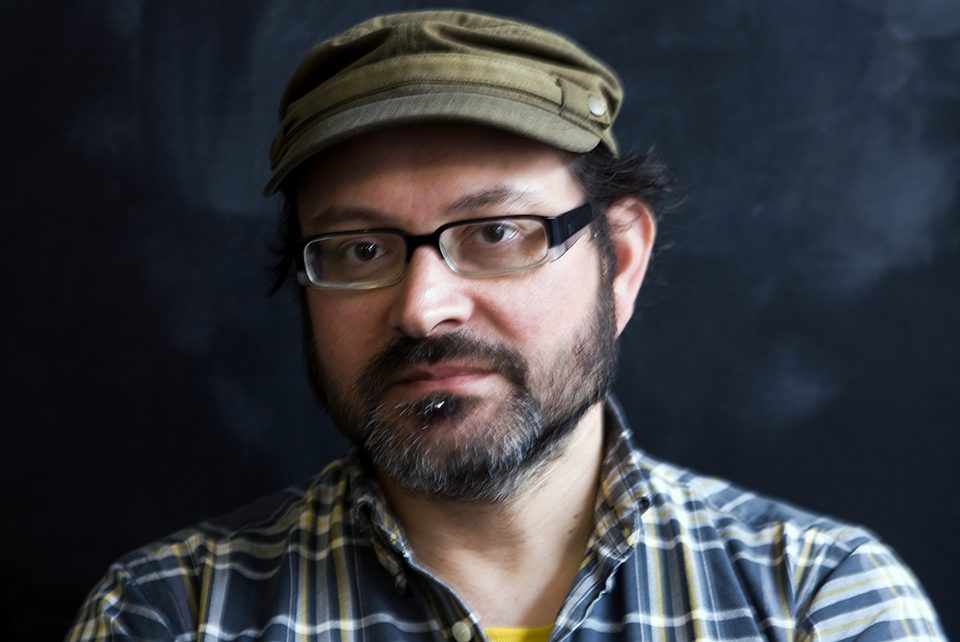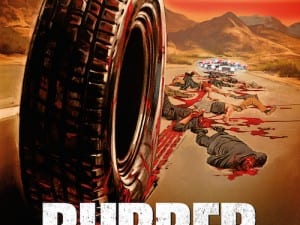A mogul in the film world, Philip Ilson co-founded the Halloween Short Film Festival in 2003, which became the London Short Film Festival in 2008. He is also a Short Film Programmer at the BFI London Film Festival. The London Short Film Festival entered its seventh year in 2010, 8 – 11 January at various locations in London including the ICA, BAFTA and Curzon Cinemas. www.shortfilms.org.uk.
What motivated you to start a short film festival?
Back then, before we started the Festival we’d been running short film events in London for quite a few years just off the back of being a film fan, a filmmaker and going to similar events in the late 1990s. The Halloween Society as it was called then, was running monthly film night-meets-club night events. At some point, we thought we should think about doing a festival. We changed the name of the Festival some years ago, but at the time, many film clubs had similar strange names so it was a part of that scene. When we started the film Festival, there was talk of calling it the London Short Film Festival to begin with, but if we’d have called it that all those years ago, I think it’d have been a tall order to produce something on the scale of what the Festival is now. We had a few years of practise under the Halloween name and it already had a history behind it.
What can we expect from London Short Film Festival 2010?
The Festival this year has grown – we’re now 10 days across multiple venues. The main crux of the festival is that it acts as a showcase for UK short film and new talent, as we have a call for entries. Beyond that we’ve always been quite proud of the fact that because of our background we do cross-arts events, which make the Festival a little bit different. There will be a lot of that happening this year. We’re also doing a lot of industry work, which we tried out last year and it went really well so we’re teaming up with partners like BAFTA to do training days with cinematographers and editors so it’s a bit more rooted in industry events. There are 14 programmes of new short films, and we’ll still have the same fun, live music events.
As a new decade approaches, how do you think film has fared in the last 10 years?
Since the mid 1990s, the short film scene hasn’t really changed that much in the sense that there’s always people making films. It was a time when all of a sudden it was a cheaper to make film and equipment was easier to access, whereas before, you couldn’t just pick up a camera and make a film. In that sense there’s always new and younger filmmakers trying different things out, but there is always the argument that there are more people making really bad films as well. But it’s fantastic that people are trying new things, and because it’s cheap they can experiment more with what they do than they can with feature films.
How has the rise of the digital age affected short filmmaking?
You can obviously get a larger audience for films online; thousands and thousands of people will watch a clip on Youtube or a short film on whatever website and they’ll comment on it. I think that’s a reason for more people making film as it’s easier to get it out to audiences. People have said that the rise of digital and online films signals the death of film festivals, but there are more than ever because there is more work being made. It’s great having thousands of people watching a film online, but it’s also probably better to have 150 people sitting at a cinema watching it with you and having that interaction and shared experience. Obviously it’s relevant and a great thing, but it can’t replace the public interaction.
What are the common issues and themes you come across in short film?
With short films, as the majority have very little money spent on them, you can only do certain things. You don’t get many sci-fi blockbusters, but you do get a lot of films about people and relationships. People like to do comedy with short film, but that’s a really hard genre. I always recommend short filmmakers not to tackle comedy, because it might be funny to the filmmaker, but a lot of the time it is rare for that to transcend beyond that to the audience. Horror films can be made quite cheaply and always gets good audiences.
What do you have planned for 2010?
I’ll be working with the East End Film Festival again, which I’ve done for three years. I’m also involved in the Branchage Jersey International Film Festival, which I was involved with last year and again this summer. It was exciting as it was a new festival in a completely different place where we had a lot of access to strange venues like castles. It was interesting coming up with ideas for putting on film events in all these extraordinary places. It was a mixture of features, music and short film. That’s going to be happening again, and there’s always lots of things to do.
Finally, what tip would you give a budding short filmmaker who wants to enter their work into festivals or competitions?
As a filmmaker, they should be honest with what they want to make and not try to make something that they think audiences are going to like. You should create something you feel really comfortable with and then just hope audiences will like it. There is the argument that anyone can do it, you just pick up a camera and make a film or, conversely, you have to go to film school and learn the proper way to do it, but there are no rules really, it’s just however you feel. There are great films coming out of film schools as well as work being picked up by those just pick up a camera and shoot something in a couple of hours.





